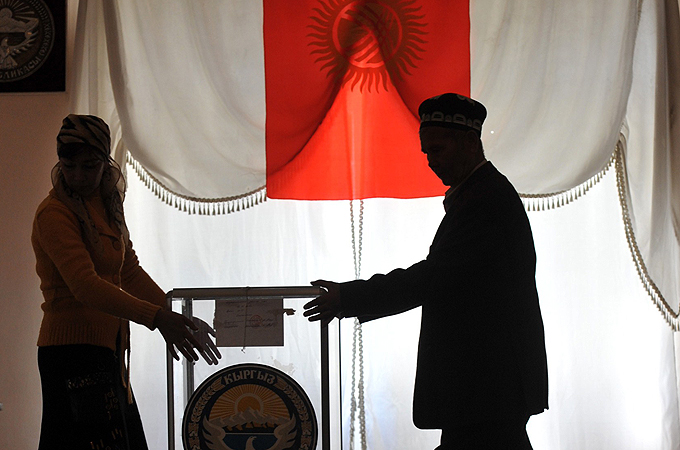Kyrgyzstan set for crucial vote
Central Asian nation to hold parliamentary polls on Sunday following months of political upheaval and ethnic violence.

 |
| Some 2.8 million voters are eligible to vote on Sunday to elect a new 120-member parliament [AFP] |
Kyrgyzstan will hold parliamentary elections on Sunday amid fears that the vote could reignite ethnic violence that killed hundreds this year.
Roza Otunbayeva, the country’s acting president, has vowed that the polls would be held in a spirit of fairness and transparency.
“These elections are of fateful importance for our people and state,” she said in an address to the nation on Saturday. “We are not just electing a parliament but starting a new system and opening a new page in our history.”
But coming after months of political turbulence and violence, tensions have been high in the run-up to the vote to choose a newly empowered legislature.
Strengthened parliament
The Kyrgyz parliament was given new powers in a referendum following a violent uprising in April that toppled Kurmanbek Bakiyev, the then president, and brought Otunbayeva to power.
Otunbayeva and her allies hope the installation of parliamentary rule will restore stability to a country shattered by unrest since the uprising.
In June, violent clashes – particularly in the country’s south – between ethnic Kyrgyz and minority Uzbeks left more than 400 people dead, most of them Uzbeks, and displaced around 400,000 people.
Many Uzbeks say they are still being victimised by security forces and targeted in the investigation into the clashes.
But according to James Bays, Al Jazeera’s correspondent reporting from the capital, Bishkek, a strong showing in the polls by supporters of Bakiyev could complicate matters.
If ex-president Bakiyev’s supporters return to power, the political order could once again become destablised, he said.
There are 120 seats available in the Zhogorku Kenesh, the parliament. Some 2.8 million of the country’s five million population are eligible to choose between the total of 29 parties.
Election officials say the vote will be overseen by a record number of international observers – 850 monitors from 32 organisations.
Around half a dozen parties are expected to gain seats, but no party is likely to win much more than 15 per cent of the vote, meaning a coalition government is inevitable.
Under the new arrangement, parliament will pick a prime minister and play a key role in forming the government.
Rivalry
But the elections have highlighted a rivalry between parties backing the recently amended constitution which boosted the power of the legislature, and parties that aim to restore the authority of the presidency.
Polls show the camps running a close race, although the final makeup of the coalition could be subject to protracted negotiations.
A pair of pro-Otunbayeva centre-left parties – Ata-Meken and the Social Democratic Party of Kyrgyzstan (SDPK) – are expected to figure prominently but not win a majority, according to recent opinion polls.
A possible upset could come from the Ar-Namys party led by ex-prime minister Felix Kulov, a favourite of the Kremlin who has campaigned under law-and-order slogans and vowed to reinstate the presidential system favoured by Moscow.
The virulently nationalist Ata-Zhurt, targeted this week in a raid on its offices that saw piles of its campaign literature burned in the street, has also made a strong showing, especially amongst ethnic Kyrgyz in the south.
Kyrgyzstan, which hosts a strategically vital US air base near Afghanistan, is set to embrace a parliamentary system of governance, marking a sharp departure from the “strongman model” exercised under Bakiyev.
Political developments in Kyrgyzstan have pleased the United States but annoyed Russia, which warned that the first parliamentary democracy in Central Asia could be a catastrophe for Kyrgyzstan.
Geo-strategically vital Kyrgyzstan – the only country in the world to host both Russian and US military bases – has long been considered the region’s most politically volatile state.